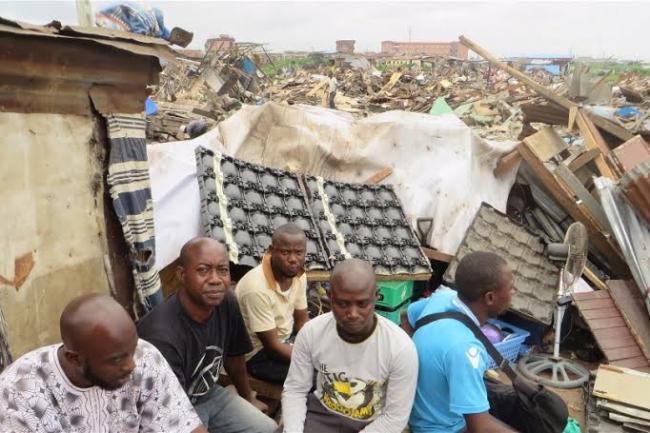“There is no viable resettlement or alternative accommodation provided by authorities for affected individuals, and many fear further evictions as they lack security of tenure,” UN Special Rapporteur on the right to adequate housing, Leilani Farha, warned in a statement.
She referred specifically to large-scale demolitions and evictions in the Badia neighbourhood of Lagos, the country’s largest city, which rendered thousands of people homeless.
More than 30,000 people will lose their homes, businesses and livelihoods, if demolitions here continue as planned, she noted.
“I am alarmed that over 10,000 people, including children, women and elders have been pushed out of their homes without prior notice in the middle of the rainy season, with police sometimes resorting to violence to carry out the evictions,” Farha said.
She added, “There was no consultation or discussion about alternative temporary housing options available to them.
She said, “More troubling yet is that two months later there are still hundreds of people sleeping in makeshift shelters or churches, facing routine harassment, with the situation getting worse every day, and without any adequate response by the local or federal authorities in line with their international human rights obligations.”
She stressed forced evictions invariably lead to homelessness due to a lack of affordable and adequate housing, in particular for people living in poverty or who have moved to cities to escape violence.
Unlawful forced evictions already struck an adjoining Lagos area in February 2013, displacing over 9,000 people, with one out of every three persons still homeless more than two years later.
Two months after the latest evictions, neither the State or Federal authorities have responded yet to the concerns raised by those affected and their representatives even though the expert raised the issue with the Government last month.
“I urge all levels of Government in Nigeria to immediately halt these unlawful evictions which are causing massive homelessness and ensure that those affected have access to just and effective remedies, including compensation,” she concluded.
Special Rapporteurs, who are not UN staff and are independent from any government or organization, are appointed by and report back to the Geneva-based UN Human Rights Council.
Photo: Sam Olukoya/IRIN
